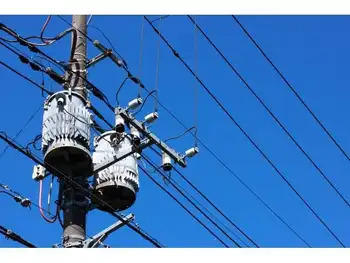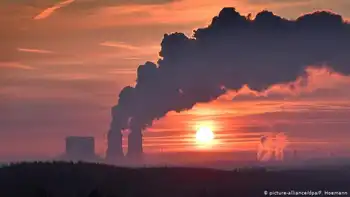Darlington hearings will continue
DURHAM REGION, ONTARIO - Calls by several groups for a postponement of the hearings into proposed new nuclear reactors at Ontario Power GenerationÂ’s Darlington site have been rejected by the panel reviewing safety and environmental issues.
Alan Graham, who chairs the joint review panel, said that the panel will — as a result of the nuclear crisis in Japan — consider receiving further submissions or scheduling further hearing days.
But, he said, “There is no need to adjourn because of the events unfolding in Japan.”
The hearings are slated to last until April 8.
Graham also rejected arguments that the hearings should be delayed because they lacked sufficient evidence.
Bringing information into the open is one of the purposes of the hearings, Graham said.
The hearings are being conducted jointly by two federal bodies: the Canadian Nuclear Safety Commission and the Canadian Environmental Assessment Agency.
Earlier, Mark Mattson, president of Lake Ontario Waterkeepers, noted that Ontario Power Generation hasnÂ’t yet chosen the type of reactor it will build.
That makes it impossible to do detailed analysis of air, water and geological impacts, Mattson said.
“You are supposed to make a decision based on evidence,” he said. “We think that evidence is lacking.”
Mattson said the earthquake and tsunami in Japan found the Achilles heel of the reactors there.
“What’s our Achilles heel?” he asked. “What are our weaknesses? Is it the lack of containment of our spent fuel ponds? Is it the fact that we sit right beside our drinking water?”
Mattson said OPG is playing a “shell game” if it doesn’t reveal its reactor choice in advance. He told the panel his group has no second chance to raise issues.
An analysis of what went wrong in Japan isnÂ’t yet available, he said.
“This environmental assessment is a one-shot deal,” he said. “We have to get the decision right.”
“The crisis in Japan underscores that we cannot afford to learn from our mistakes.... This panel doesn’t have the facts it needs to make a decision.”
Theresa McClenaghan of the Canadian Environmental Law Association also said the panel doesnÂ’t have the information it needs.
OPG raised the possibility that it might build the Candu 6 reactor model at Darlington only late last year, she said.
There is a “huge paucity of information” about the specifics of the Candu 6, she said.
“The choice of technology is a fundamental point, and it’s lacking here,” she said.
She also said OPG has only submitted information about “design basis” accidents — that is, accidents that have been foreseen and for which provisions have been made.
The Japanese quake and tsunami was a “beyond design basis” accident, she said, and the panel should consider the impact of accidents that have not been planned for.
Stephen Garrod, the lawyer for OPG, said thereÂ’s no need for delay.
He said the current hearing can only grant OPG a licence for site preparation. The company requires two further licences to construct and operate reactors, he said, and concerns raised by the intervenors can be addressed then.
Garrod said future proceedings will offer “many opportunities to incorporate lessons learned” from the Japanese disaster by.
“It is not necessary in OPG’s view to stop moving while learning continues,” he said.
Mattson, however, argued that those licensing hearings donÂ’t offer the same opportunity for input from the public that the current hearings do.
Garrod noted that OPG will, in the light of the Japanese disaster, provide additional information about earthquakes during the hearings.
But Brennan Lloyd of Northwatch, another group that has asked for a delay in the hearings, questioned whether that will be adequate.
“I don’t think it can be done with an additional Power Point on seismology,” Lloyd said.
Related News

Growing pot sucks up electricity and pumps out an astounding amount of carbon dioxide — it doesn't have to
VANCOUVER - In the seven months since the Trudeau government legalized recreational marijuana use, licensed producers across the country have been locked in a frenetic race to grow mass quantities of cannabis for the new market.
But amid the rush for scale, questions of sustainability have often taken a back seat.
According to EQ Research LLC, a U.S.-based clean-energy consulting firm, cannabis facilities can need up to 150 kilowatt-hours of electricity per year per square foot. Such input is on par with data centres, which are themselves 50 to 200 times more energy-intensive than a typical office building.
At the Lawrence Berkley National…



